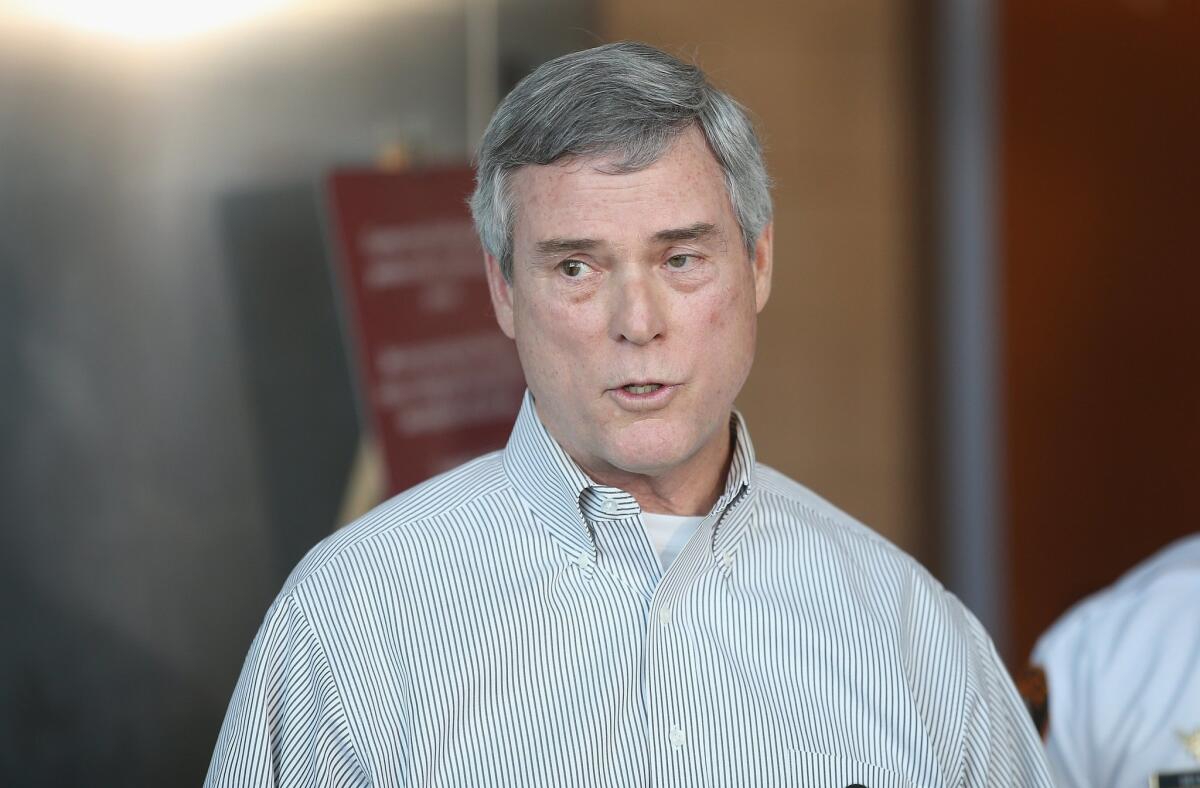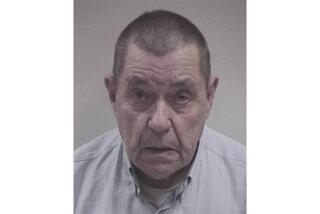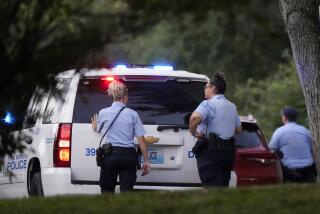St. Louis prosecutor defends his handling of Ferguson grand jury

Reporting from St. Louis — St. Louis County prosecutor Robert McCulloch defended his handling of the Ferguson grand jury during a law school talk that drew controversy because it was closed to the public.
“You hear that nonsense about how, of course, a prosecutor can indict a ham sandwich,” McCulloch told a packed audience of law students, professors and staff at a law school event at the University of Missouri in Columbia, Mo., the state’s flagship public university. “But at some point the prosecutor’s got to stand up in front a jury and prove that ham sandwich actually committed a crime.”
Before the event, a university spokesman told the Los Angeles Times that limited seating for the event was prioritized for the law school and that the event would not be recorded to encourage a free exchange of ideas.
However, the event organizers later decided to record the remarks, which were released to The Times. In addition, The Times obtained an unofficial recording taped by an attendee.
The event was also tweeted by some students in attendance and drew a demonstration outside the campus venue. A recently retired state legislator who represented the district also criticized that McCulloch’s speech was closed to the public.
A similar McCulloch talk at the St. Louis University law school had been public.
“I am ashamed of Mizzou Law School for closing Bob McCulloch’s speech on grand jury to the press and public,” former state Rep. Chris Kelly tweeted.
The topic of McCulloch’s presentation was grand juries — as a general instrument of justice and specifically the grand jury that investigated the Ferguson shooting.
McCulloch’s remarks, according to the recordings, largely tracked his previous descriptions of the investigation into the Aug. 9 shooting of unarmed, black 18-year-old Michael Brown by Ferguson police Officer Darren Wilson after a struggle.
For several months, a grand jury directed by McCulloch’s office pored over copious amounts of evidence and witness testimony before ultimately deciding on Nov. 24 there was no probable cause to charge Wilson with a crime.
A simultaneous Justice Department investigation reached a similar conclusion this year and cast doubt on some witnesses’ claims that Brown had his hands up.
The mood at Tuesday’s event was often light, with McCulloch joking with the audience and drawing laughs. But speakers sometimes raised challenging questions during a question-and-answer session.
“What are you personally doing?” one questioner asked McCulloch regarding the Justice Department report that said Ferguson’s Police Department was unconstitutionally racially profiling its residents and heavily ticketing poor drivers.
“For years, we have tried to eliminate some of the municipalities, at least the municipal police departments, because they’re terrible police departments, they’re lousy,” McCulloch said. “Ferguson wouldn’t necessarily have been among that group, because there are so many more — if you’re from Ferguson, you can probably name half of them that are far worse than Ferguson in terms of the ability to provide effective law enforcement to the people of St. Louis County.”
The final questioner asked McCulloch what he would have done differently about the Nov. 24 grand jury announcement.
“I would not change what I decided to do” in terms having evidence presented to the grand jury and letting the grand jury investigate the case, McCulloch said.
He added, “I certainly wouldn’t change releasing the information [to the public] -- maybe the manner in which it was done. I would have been more thorough about it. We apparently missed a stack of statements in our rush” to release the documents immediately to the public.
“It’s something we’ll be picking apart for years to see what we can do better and how we can do better,” McCulloch said.
McCulloch went on to say, “The cops have got to get out in the street more, they’ve got to get more involved with the community,” but added that the changes that need to be made were a “two-way street.”
More to Read
Sign up for Essential California
The most important California stories and recommendations in your inbox every morning.
You may occasionally receive promotional content from the Los Angeles Times.











